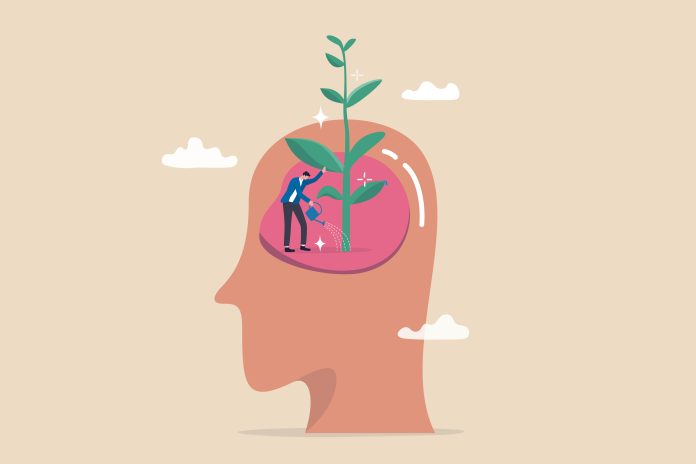
When it comes to this topic, it doesn’t matter which phase of life you are in. There has most likely been a time when you have felt like your best isn’t good enough. Whether it’s related to your job, parenting, health, or relationships, it’s an uncomfortable place to be in.
Once we identify that we’re feeling this way, what can we do about it?
To begin, notice how this narrative makes you feel. Are you feeling defeated? Emotionally drained? Are you left feeling like a failure? This way of thinking can result in things that are normally easy and enjoyable feel more like a chore, negatively affecting your day-to-day life.
Next, ask yourself this question: Can I do better than my best?
We are here to tell you that you can’t. But the next part of this mindset shift is the exciting part of this conversation.
Lastly, acknowledge this sentiment: You may not be able to do better than your best, but your best changes over time. As you gain more tools and prioritize your wellness, you often see a shift in what feels like your best.
Let’s explore a few areas where we can apply this mindset shift.
Health
There will be times in our lives when we do everything within our power to achieve health at an optimal level. Charlotte shared that she deeply felt like her best wasn’t good enough when she was trying to manage her chronic illness. “I have a genetic condition called FH, or Familial Hypercholesterolemia. It means that my liver is pumping out cholesterol at a rapid rate. I used to think that I could control it with my diet and with intense exercise. This mindset continuously left me feeling like my best wasn’t good enough. I truly feel like I gave it my all, plus more! And still, my cholesterol was 2x higher than the normal range. It left me with a deep sense of failure. My inner narrative was that I wasn’t good enough.”
Whether you are also learning to live with a chronic condition, or you’ve had an isolated time of feeling unwell, this is something that can be extremely challenging. The idea of surrendering to feeling unwell brings up a lot of discomfort. Charlotte added, “There was a level of surrender that I’ve needed to learn in order to give myself grace. I was doing my best, but there were factors outside of my control.”
Wellness actionable takeaway: Ask yourself, “What is the external force that is being put on the situation?” There will always be a force outside of your control that can affect how you measure success. See if you have been using that external force to define your success.
Career
This topic often hits home for many people. This resonated deeply with Leslie when looking back at this past school year. “I know I am not alone when I say that this was one of the most challenging school years to date. There were so many external factors that affected the way the classroom systems operated. School has drastically changed since 2020, and if I don’t adjust my mindset and only employ strategies that worked in the past, I’m left with this feeling of failure.” Leslie further stated, “Resisting this shift in thinking can easily lead to burnout. What we resist persists, so acknowledging and softening this resistance actually brings about a sense of freedom.”
Wellness actionable takeaway: Ask yourself, “What have I been doing RIGHT at work?” Where/how has this behavior or skill impacted others or your business in a positive way? When we practice this takeaway, we will find a positive outcome that we have been ignoring, or allowing to get overshadowed by the challenging parts. What gets uncovered here starts to morph into the new version of success.
Relationships
Oftentimes, we attach rules and expectations to our relationships that can cause stress. For example, we expect all aspects of our relationships to feel like a walk in the park on the perfect sunny day. We rarely expect the pitfalls and speed bumps, so when things get rocky, it feels like a failure. More likely, it’s the natural progression or evolution of the partnership.
We can experience these growth periods in a friendship, a romantic relationship, or co-working arrangement. Not all of these complex relationships are meant to work out forever; therefore, should we really look at the dissolution of these relationships as a sign of failure? What if we started to flip the narrative and look at those rocky moments as a sign of growth?
Wellness actionable takeaway: This is not an easy one to reconcile. To practice this mindset shift in this area of life, we need to surrender to the fact that we cannot control the actions and mindsets of other people. Start by acknowledging the effort that you put into the partnership, whether at home, at work, or other relationships. Identify the areas and moments when you know that you put your all into it, even if it wasn’t received the way you had hoped. Recognize each of those moments as a measure of success, regardless of the outcome. This release of control is extremely challenging, but over time, it helps us reframe the notion of relationship success.
We are not here to pretend like this work is easy. It’s challenging and messy and uncomfortable at times. There is no one correct answer when it comes to shifting this mindset; however, the alternative is far messier. No one deserves to feel like their best isn’t good enough. Through these practices, enveloped in self-compassion, we begin to see the effort as the success. That is the space where growth and change happens.











 20 lucky winners will win $500 each in prizes totaling $10,000.
20 lucky winners will win $500 each in prizes totaling $10,000. 